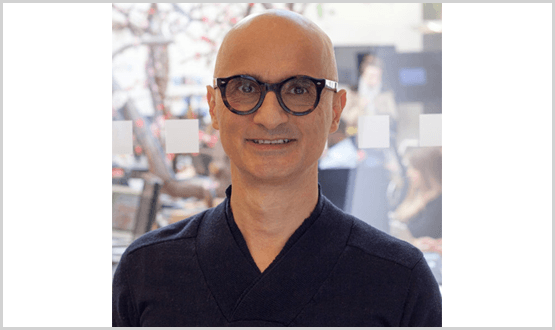Babylon Health raises £50m for AI diagnosis tool

Digital healthcare company, Babylon Health, have raised about £50 million to further develop its artificial intelligence clinical diagnosis capabilities.
Babylon says the new AI tool will help clinicians by providing them with a diagnosis of more routine conditions. Planned capabilities include using natural language processing to take notes in patient consultations.
Speaking to Digital Health News, Ali Parsa, founder and chief executive of Babylon, claimed the new diagnosis tool could potentially cut the cost of a consultation by 80%.
He said the latest £50m raised by Babylon that the money will go towards “engineering and mass producing the technology” for a new AI tool that will help clinicians by providing diagnosis of more routine conditions.
The new AI diagnosis tool will work in conjunction with Babylon’s existing simpler clinical triage app, symptom checker, video and text consultations and GP booking service.
“If we can relieve the doctors from doing the mundane stuff, so they can actually get on with doing the stuff that machines will not be able to do for a long time, that’s the end result of where we want to be,” said Parsa.
The potentially uneasy relationship between doctors and fast-evolving AI technology was tackled by Parsa in a Babylon press release: “this is about machines and medics co-operating not competing”.
“Doctors do a lot more than diagnosis: artificial intelligence will be a tool that will allow doctors and health care professionals to become more accessible and affordable”.
Parsa told Digital Health News that the AI tool could cut consultation time and save money.
“You can see what we could do per capita is cut the cost of consultation by almost 80%, and that is a significant step towards making healthcare affordable for everybody.”
He said the tool would also be able to write notes during the consultation.
“When the doctor is asking you questions, the machine’s natural language is processing, listening to the conversations and it’s structuring what is an unstructured conversation between us into notes.”
However, when pushed on where the legal responsibility lies with this tool, Parsa said that “this is no more than providing a doctor with the tools”.
“When you consult a doctor, of course the responsibility is with the doctor.”
He compared this with Babylon’s existing clinical triage app, “when we do the triage, which is when we tell you for instance even don’t go to the doctor, of course then the responsibility is then entirely with us”.
Babylon is using a version of this triage app in an on-going NHS England NHS 111 trial in north London, and Parsa said the “satisfaction rating on it is huge”.
When the AI triage tool was first launched in June last year, questions were raised over the differing opinions between its answers and that of a clinician.
Babylon is primarily known for its subscription based remote GP consultation service which provides video consultations through your phone for a monthly fee or a one-off payment.
The company said that since January, Babylon has had at least one million app downloads.
The interest shown by the huge amount invested, is in contrast to the Royal Society’s findings this month from its commissioned Ipsos MORI poll, that found only 9% of those surveyed recognised the term, “machine learning”.
Parsa said he hopes that the technology is available in a few months covering about 80% of primary care diseases.




3 Comments
Using tools to do great things is brill and saves the taxpayer a small fortune, but it’s time4nhs leadership (the nhs control health data) to recognize that the tools have to be built, and neither nhs clinicians nor nhs management build the tools, they are users.
This is awesome news for the sector but I’m puzzled by the amount of attention Babylon is getting for this when Your.MD has an AI symptom checker that is already serving millions all over the world. I suppose the difference is they’ve quietly got on with creating leading edge AI technology. Both Your.MD is already as accurate as a Dr on the hundreds of conditions it has developed and they haven’t spent anywhere near £50m on the technology. Got to give Ali credit though he’s good at getting money and publicity.
This is awesome news. That said I remain frustrated. I no longer use my “NHS” GP who is a contractor, provides a poor service and has failed to modernise, refuses to email and yet gets paid anyway. Meanwhile I have to pay again to make up for the shortcomings of the NHS. Commissioning models need a radical shake up to enable more modern and flexible services. 90% of the time my GP can be in the cloud. Local capacity can play into this and be “uberized” so when I do need to see a GP it is at a time and place to suit me whether near to home, work or the local A&E.
Comments are closed.